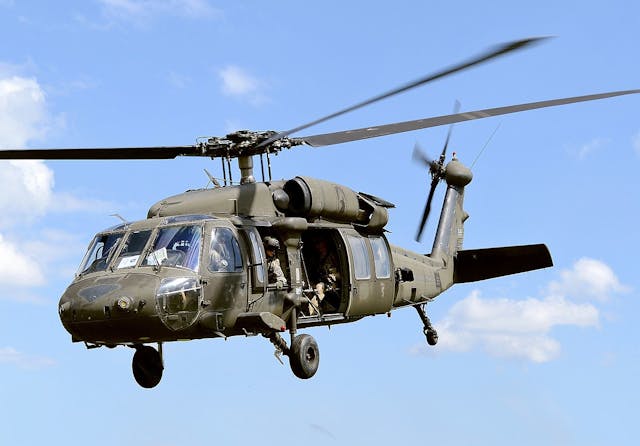The Influence of Lasting Practices on the Future of Airplane Operations and Emissions Decrease
As the air travel sector encounters enhancing scrutiny over its environmental effect, the adoption of lasting methods becomes an important path towards future airplane operations and exhausts decrease. Innovations in sustainable aeronautics fuels and advancements in hybrid propulsion modern technologies stand at the leading edge of this makeover, appealing significant reductions in greenhouse gas exhausts. Nevertheless, the successful assimilation of these efforts rests on a range of factors, consisting of regulative frameworks and market cooperation. The inquiry continues to be: just how will these advancing techniques improve the characteristics of air travel and add to an extra sustainable future?

Introduction of Sustainable Practices
Lasting techniques in airplane operations include a series of methods focused on decreasing environmental effect while keeping functional efficiency. These techniques are necessary in the air travel sector's commitment to reducing its carbon impact and sticking to worldwide environmental requirements. Trick efforts include enhancing trip paths to minimize gas intake, boosting upkeep protocols to ensure airplane operate at peak efficiency, and implementing innovative technologies such as winglets and lightweight materials that enhance aerodynamics.

Educating and engaging team on sustainability methods also play a crucial role, fostering a society of ecological responsibility within companies. In general, the integration of these lasting methods not just helps lower emissions however also boosts the long-term practicality of the aviation market, guaranteeing it fulfills the demands of both clients and regulative bodies while adding to international sustainability goals.
Innovative Fuel Alternatives
Various innovative gas options are emerging as crucial solutions to decrease the air travel market's reliance on conventional fossil fuels. Amongst these options, Lasting Air travel Fuels (SAFs) have acquired substantial attention as a result of their possible to reduce lifecycle greenhouse gas emissions by as much as 80% contrasted to conventional jet fuels. SAFs are originated from numerous feedstocks, consisting of waste oils, agricultural residues, and even algae, making them a functional alternative for the market.
An additional encouraging choice is hydrogen fuel, which, when utilized in fuel cells, produces just water vapor as a result. This zero-emission prospective presents a considerable possibility for decarbonizing flight operations, particularly for short-haul trips and regional airplane. Additionally, electrical propulsion systems are being discovered, leveraging battery innovation to power aircraft. While present battery capability limits variety and payload, ongoing innovations might soon render electrical flights practical for details applications - uh 60.
Finally, biofuels stemmed from biomass are being checked out, supplying a sustainable alternative that can be mixed with conventional gas. Collectively, these innovative gas alternatives stand for an important step towards accomplishing a lasting aviation ecosystem, lining up with international discharges decrease targets and improving the industry's ecological stewardship.
Technological Advancements in Aviation

How can technical developments reshape the future of aviation? The assimilation of cutting-edge modern technologies is pivotal in transforming aircraft procedures, boosting effectiveness, and lowering emissions. Developments such as electrical and hybrid propulsion systems go to the forefront, appealing considerable decreases in gas usage and greenhouse gas discharges. These systems leverage advancements in battery innovation and power monitoring, making it possible for aircraft to run with a lower ecological impact.
In addition, the implementation of advanced materials, such as lightweight composites, adds to boosted aerodynamics and gas effectiveness. Making use of fabricated knowledge and machine understanding in trip operations optimizes route preparation and decreases fuel have a peek at this site shed by enabling real-time adjustments based on weather condition and traffic conditions. In addition, the advancement of self-governing and from another location piloted airplane systems stands to transform cargo and guest transport, potentially enhancing efficiency while lessening human error.
Moreover, lasting air travel modern technologies, including sophisticated air traffic management systems, can decrease and improve procedures blockage, bring about lower exhausts throughout flight. These developments collectively stand for a standard shift in air travel, guaranteeing a future where sustainability and functional performance are linked, consequently supporting the sector's dedication to reducing its ecological effect.

Regulatory Structure and Conformity
Due to the growing emphasis on environmental stewardship within the air travel market, the governing structure regulating aircraft procedures is evolving to advertise lasting practices. Regulatory bodies, such as the International Civil Air Travel Company (ICAO) and numerous national aeronautics authorities, are presenting stringent standards intended at minimizing emissions and Homepage improving operational efficiency.
These laws often consist of the fostering of Lasting Aviation Fuel (SAF), which has been acknowledged as an essential component in attaining reduced carbon impacts. Additionally, conformity with these guidelines needs airlines to carry out functional practices and innovative modern technologies, such as maximized trip courses and boosted air web traffic monitoring, to reduce gas usage.
Additionally, the enforcement of exhausts trading plans and carbon countering campaigns is ending up being significantly common, compelling airline companies to keep track of and report their emissions properly. Non-compliance can lead to considerable penalties, thus pressing drivers to prioritize sustainability in their company designs.
Ultimately, the progressing regulatory landscape not just drives innovation and financial investment in eco-friendly innovations but likewise promotes a society of accountability within the air travel sector. As these frameworks remain to create, the emphasis on lasting read more techniques will certainly be integral to accomplishing the market's long-lasting ecological goals.
Future Trends in Airplane Workflow
As the aviation sector adapts to an increasingly stringent regulative setting, future patterns in airplane procedures are readied to focus on innovative remedies that additionally boost sustainability and effectiveness - uh 60. Secret developments will likely consist of the fostering of advanced air website traffic management systems, which make use of real-time data and expert system to enhance flight courses, lowering fuel intake and exhausts
One more significant fad is the raised assimilation of sustainable aviation fuels (SAFs) These alternatives to traditional jet fuel, derived from renewable resources, can considerably reduce lifecycle greenhouse gas emissions. The industry's dedication to SAFs will likely speed up as airline companies work together with fuel manufacturers to make sure schedule and cost-effectiveness.
Furthermore, the press in the direction of electrification and crossbreed propulsion systems is getting energy. Emerging aircraft designs will include these technologies, providing quieter and much more reliable operations, particularly for short-haul flights.
Final Thought
The adoption of lasting air travel gas, paired with improvements in hybrid and electrical propulsion systems, is vital for decreasing lifecycle greenhouse gas emissions. Optimizing trip paths and embracing innovative technologies contribute to a quieter and a lot more environmentally friendly aeronautics field.
Innovations in lasting aviation fuels and developments in crossbreed propulsion innovations stand at the leading edge of this improvement, encouraging substantial decreases in greenhouse gas exhausts.Countless cutting-edge fuel choices are arising as essential remedies to decrease the air travel sector's dependence on traditional fossil fuels - uh 60. Amongst these options, Lasting Aeronautics Gas (SAFs) have actually acquired significant focus due to their potential to decrease lifecycle greenhouse gas discharges by up to 80% compared to standard jet fuels.Another significant pattern is the boosted assimilation of lasting air travel fuels (SAFs) The fostering of lasting aeronautics fuels, paired with improvements in hybrid and electrical propulsion systems, is vital for lessening lifecycle greenhouse gas discharges